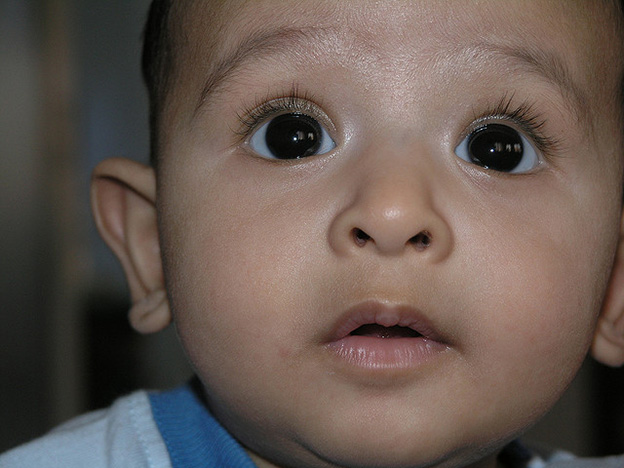Blindness at birth, however brief, has lifelong impact on the brain

An international team of scientists has found that a brief period of blindness early in life—even just a matter of months—has a lasting impact on how the brain is wired for vision. The findings are significant, say researchers, because this temporary deprivation has a lifelong impact as the brain compensates with auditory responses in the visual areas of the brain, resulting in visual problems as adults.
An international team of scientists has found that a brief period of blindness early in life—even just a matter of months—has a lasting impact on how the brain is wired for vision.
The findings are significant, say researchers, because this temporary deprivation has a lifelong impact as the brain compensates with auditory responses in the visual areas of the brain, resulting in visual problems as adults.
This highlights a competition for territory as the brain maps its circuitry during the early, sensitive period of development.
“Our studies highlight the need for normal early visual experience to lay down and/or preserve the neural architecture that will later mediate normal sensory capabilities,” says McMaster psychology professor Terri Lewis, who collaborated on the paper with lead author Olivier Collignon, of the University of Trento in Italy, McMaster colleague Daphne Maurer, a professor in the Department of Psychology, Neuroscience & Behaviour, and colleagues from the University of Montreal.
”It is much like the need for a solid foundation if you want to build a structurally sound house. And we now know that the solid foundation must be laid down in early infancy, while the visual system is still very immature,” she says.
The findings were published today in the journal Current Biology.
Researchers examined the brain responses to auditory stimuli in 11 adults who had been treated for congenital cataracts in both eyes. These adults had been deprived of all patterned vision from birth until the cataracts were removed surgically and the eyes fitted with appropriate contact lenses that restored nearly normal visual input.
The age at treatment varied from nine days to just under eight months of age. The control group consisted of 11 visually normal adults.
“The cataract-recovery participants had been blind for less than 8 months, but their blindness occurred at birth, during the most sensitive period for brain development. They showed enhanced auditory-driven activity in focal visual regions”, explained Collignon. “Thus, a short and transient period of visual deprivation early in life leads to enduring large-scale crossmodal reorganization of the brain circuitry typically dedicated to vision”.
Crossmodal plasticity in the case of blindness is a vital brain mechanism for compensating for visual deprivation, but the mechanism also can have negative effects on visual restoration, because it might interfere, to a certain extent, with the optimal resettlement of the regained sensory inputs.
“We have discovered that playing first-person shooter video games can restore some of the patients’ visual deficits even during adulthood, but the recovery is never complete. One reason for such modest improvements might be the rewiring of the brain such that space normally reserved for vision has been taken over by audition,” says Lewis.
Researchers are now investigating further how this reorganization might affect impaired vision in cataract-reversal patients.

